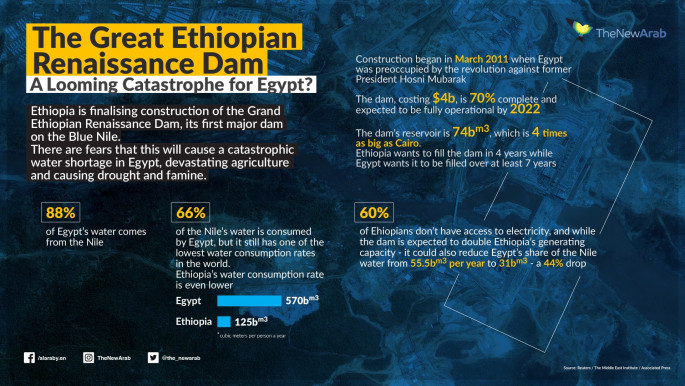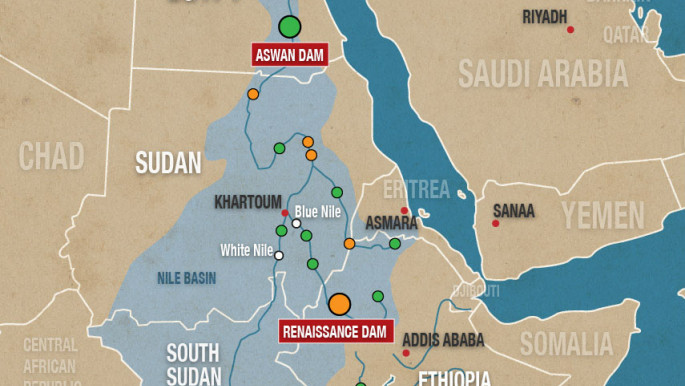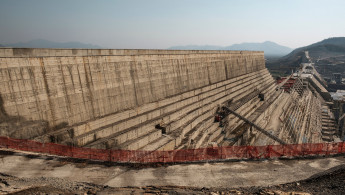Ethiopia to skip new round of talks with Egypt over Nile dam dispute
A final deal on the massive Great Ethiopian Renaissance Dam (GERD) had been expected this month, but US Secretary of State Mike Pompeo said on a visit to Ethiopia last week that an agreement now might take months as "a great deal of work remains."
The dispute over what will be Africa's largest hydroelectric dam pits Ethiopia's desire to pull millions out of poverty against Egypt's concerns over critical water supply. Egypt fears that the GERD will deprive its citizens of life-giving water, causing famine and drought.
Read more: Ethiopia’s Great Renaissance Dam – A Catastrophe for Egypt?
Ethiopia will skip the talks in Washington on Thursday and Friday "because the country's delegation hasn't concluded its consultation with relevant stakeholders," the Ministry of Water, Irrigation and Energy said on its Facebook page. "The decision has been communicated with the US Treasury secretary."
Egyptian diplomatic sources had earlier told The New Arab’s Arabic-language service that Ethiopia had requested that Egypt postpone any agreement on the dam until after Ethiopian parliamentary elections in August.
The announcement came amid widespread concerns in Ethiopia that its delegation has been pressured by the US to reach a deal on the $4.6 billion dam that is nearing completion. The US became involved in the talks following an invitation from Egypt.
"Ethiopia will never sign on an agreement that will surrender its right to use the Nile River," the Ethiopian ambassador to the US, Fitsum Arega, said on Twitter.
Responding to Ethiopia's decision to sit out this week's meeting, Egypt’s foreign ministry spokesman, Ahmed Hafez, asserted that Egypt remained “committed to the negotiation track ... according to what was agreed upon by the three countries.” He said the Egyptian irrigation minister would attend the talks.
Egypt wants the dam to be filled more slowly to reduce restrictions on the flow of the Nile.
Ethiopia says the dam is needed to provide electricity for development. In January it announced that it will start filling the dam, now more than 70 percent complete, in July at the start of the rainy season.
“There was lots of discomfort recently due to the behavior and changing role of the US among policy makers in Ethiopia,” political analyst Abel Abate Demissie told The Associated Press.
Follow us on Twitter and Instagram to stay connected





 Follow the Middle East's top stories in English at The New Arab on Google News
Follow the Middle East's top stories in English at The New Arab on Google News

![MP Essam Diab's pursuit to block TikTok in Egypt has revived an already ongoing debate in the country. [Getty]](/sites/default/files/styles/image_330x185/public/1230748046.jpeg?h=a5f2f23a&itok=-8MqBLLC)
